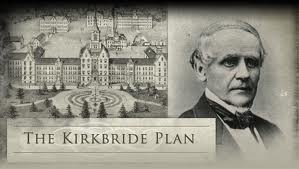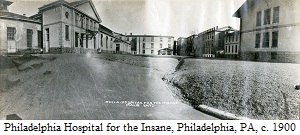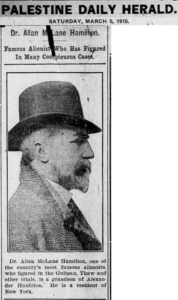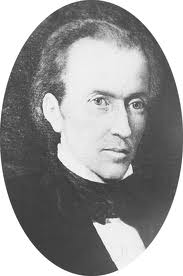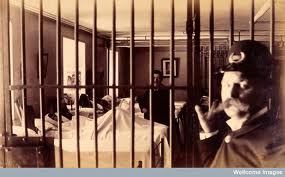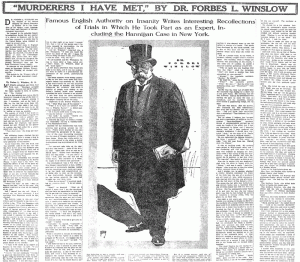Interest in mental health and how to care for the mentally ill heightened as time went on and professionals became more immersed in studying the intricacies of the mind and human behavior. In the United States, by the turn of the twentieth century large asylums were still the tool of choice for helping the insane become well, or for dealing efficiently with the chronic insane. As mental health specialists made advances in treatment, they continued to look at ways to present themselves and their work to the public in a positive way.
In 1854, the Association of Medical Superintendents of American Asylums for the Insane (AMSAAI) debated on what terms they should use to even describe the buildings where their patients lived. Dr. Thomas Kirkbride, a pioneer in asylum architecture, presented a paper at the AMSAAI’s ninth meeting: “On the Importance of Precision and Accuracy in the Use of Terms for Insanity and Instructions for its Treatment.” In it, he objected to worlds like lunatic, asylum, retreat, keeper, and cell to describe anything within the walls of what were commonly known as insane asylums. In many people’s minds, the word “hospital” was only a place for paupers and outcasts, so it was not suitable, either. “Insanery” seemed suitable to one doctor discussing the paper, since it resembled the British word “infirmary.” This particular alienist (mental health specialist) did not especially object to the terms asylum or lunatic, since the former signified a sacred place or sanctuary, and the latter had been in common usage for a long period.
By 1920, at the seventy-sixth annual meeting of the American Medico-Psychological Association, which had incorporated the old AMSAAI, words like cell and keeper had indeed been discontinued because of their negative connotations. Now the concern at hand was whether or not to change the name of their organization and the way they referred to insanity. In the end, the organization was re-named the American Association of Psychiatrists, and the word psychiatry was substituted for the words “the treatment of insanity.”
______________________________________________________________________________________

